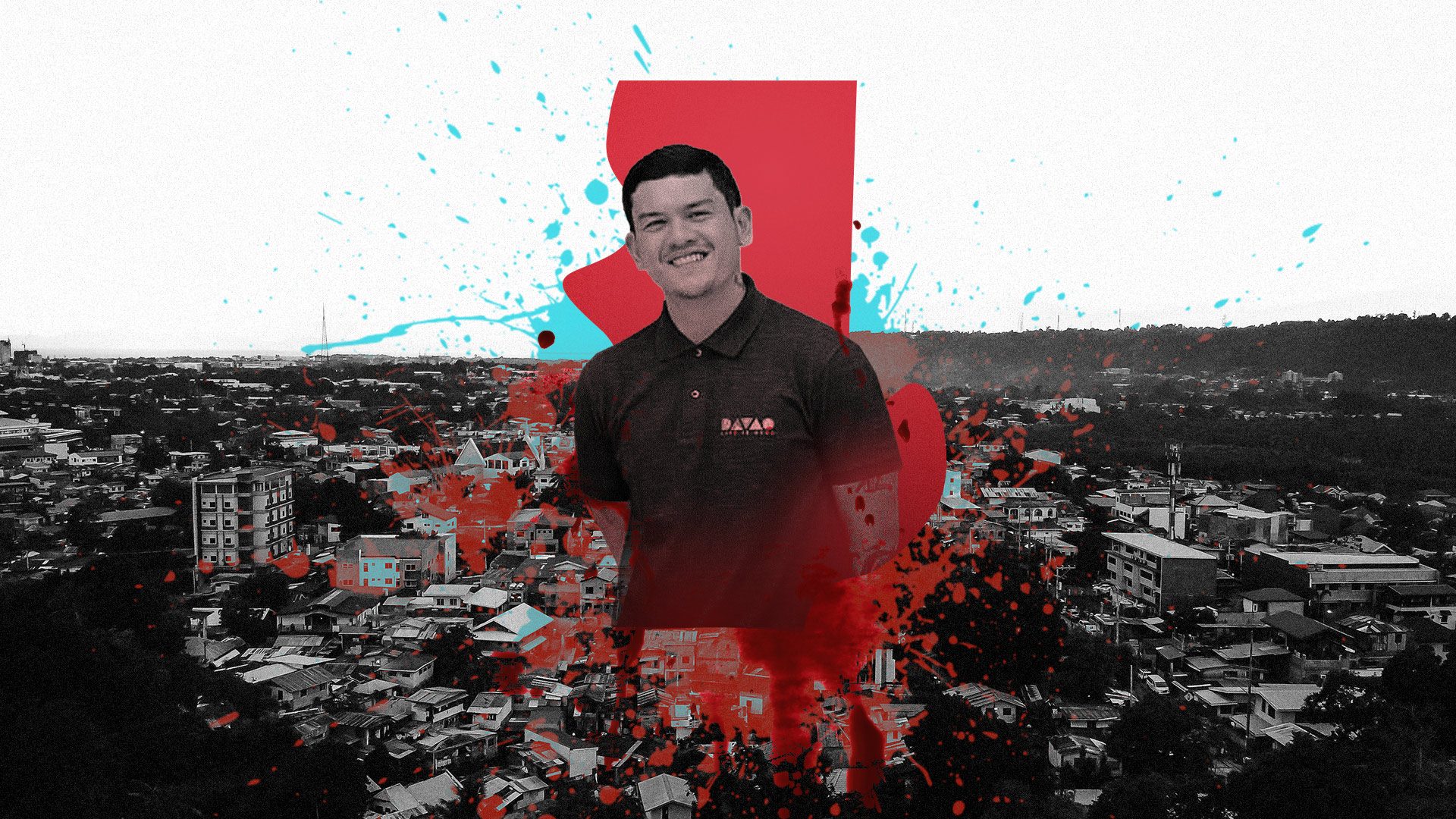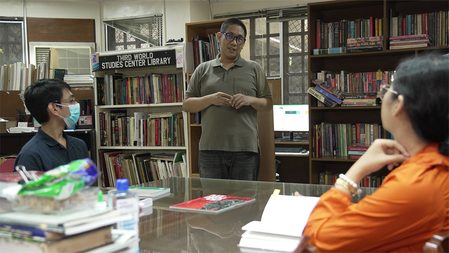SUMMARY
This is AI generated summarization, which may have errors. For context, always refer to the full article.

MANILA, Philippines – Residents of Davao City had already witnessed rampant bloodshed even before Mayor Sebastian “Baste” Duterte, son of the former president, declared on March 22, his war against illegal drugs. His new declaration could make the violence even worse.
There have been at least 97 drug-related killings in Davao City between July 1, 2022 and March 15, 2024, according to monitoring conducted by the Dahas Project of the University of the Philippines’ Third World Studies Center. This means that at least one person was killed a week since Baste Duterte took office.
Out of this number, 96 were killed by state agents – from the Philippine National Police or the Philippine Drug Enforcement Agency. One was killed by an unidentified assailant.
Dahas Project is the only remaining effort to methodologically count the drug-related killings across the Philippines that continued from Duterte to President Ferdinand Marcos Jr.
The latest death toll in Davao City accounts for at least 16% of the 582 drug-related killings recorded under the current Marcos administration as of March 15.
In a report released to mark the first year of the Marcos administration, the team noted the “sudden emergence of Davao del Sur as the top hotspot” for drug-related killings. The primary victims are “low-level drug peddlers” and mostly concentrated in Davao City.
During Baste’s first 12 months in office, at least 53 people were already killed in Davao City alone – almost 15% of the total 342 drug-related killings during the first year of the Marcos administration.
The younger Duterte on March 22 echoed the messaging of his father, warning alleged drug personalities to leave before he gets to them.
“So this will be your chance to get out of this city. If not, sorry, I’m already telling you right now, get out of here [and] if you’re not going to stop, I’ll kill you,” he said in Bisaya during the ceremony welcoming new Davao City police chief Richard Bad-ang.
Between then and Monday, March 25, the Facebook page of Davao City already posted about two individuals killed in police anti-illegal drug operations. This could just be the beginning of rampant violence, according to Human Rights Watch (HRW) senior researcher Carlos Conde.
“With Mayor Duterte’s declaration of war against drugs in his city, we fear the violence will worsen and the impunity will persist,” he told Rappler on Monday.
“We also cannot expect accountability for the killings, what with the Duterte family’s tight grip on the city,” Conde added.
Lasting violence in Davao City
The violence that continues in Davao City is a legacy of the Duterte patriarch who served as mayor for more than two decades. His rule was marked by killings – estimated to be in the thousands – allegedly carried out by the notorious Davao Death Squad (DDS).
The Commission on Human Rights, then led by Leila de Lima, identified at least 206 killings attributable to the DDS between 2005 and 2009.
The elder Duterte spread the bloodshed nationwide after he became president in 2016. He ended his term in June 2022 with his flagship anti-illegal drug campaign killing at least 6,252 in police operations alone, according to official numbers. If those killed vigilante-style are included, human rights groups estimate, the numbers would rise to between 27,000 and 30,000.
His violent war on drugs is currently under investigation at the International Criminal Court for alleged crimes against humanity. The ICC is also investigating killings in Davao City between 2011 and 2016 “given the similarities between those…and the nationwide war on drugs…and the overlap of individuals involved during both periods.”
The unresolved killings within this period is one of the reasons why the ICC wants to probe further into the situation. In June 2022, ICC Prosecutor Karim Khan said that “the Government of the Philippines has provided no information whatsoever about past or ongoing criminal investigations or prosecutions relating to alleged crimes committed in Davao.”
Marcos, during his Germany trip, said that the illegal drug issue in the Philippines remains “a big problem, but our approach has changed significantly.”
HRW’s Conde said that the ball is in the court of the Marcos administration to stop the younger Duterte’s war on drugs, a way for him to prove that “all his talk about respect for human rights is not just talk.”
“This is now a challenge for the national authorities to make sure that these deaths are properly and impartially investigated and the perpetrators brought to justice,” Conde said, adding that Davao City “cannot continue being a killing field.” – Rappler.com
Add a comment
How does this make you feel?


![[The Slingshot] Lito Patay’s 4 hours and 38 minutes of infamy](https://www.rappler.com/tachyon/2024/07/Lito-Patay-4-hours-infamy-July-19-2024.jpg?resize=257%2C257&crop=233px%2C0px%2C720px%2C720px)
![[OPINION] A classic Duterte misdirection or power move?](https://www.rappler.com/tachyon/2024/06/tl-duterte-misdirection-power-move-June-27-2024-revised-02.jpg?resize=257%2C257&crop=195px%2C0px%2C720px%2C720px)




![[Pastilan] The Great Philippine Identity Sale](https://www.rappler.com/tachyon/2024/07/great-philippine-identity-sale-july-16-2024.jpg?resize=257%2C257&crop=486px%2C0px%2C1080px%2C1080px)


![[The Slingshot] A Duterte and Bato cop named Patay](https://www.rappler.com/tachyon/2024/06/tl-lito-patay.jpg?resize=257%2C257&crop=322px%2C0px%2C720px%2C720px)





There are no comments yet. Add your comment to start the conversation.